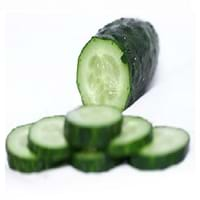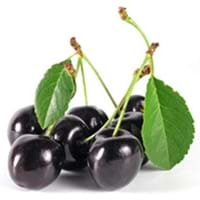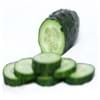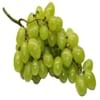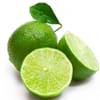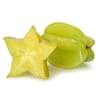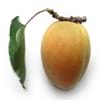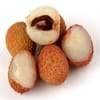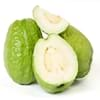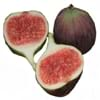Health Benefits
Arthritis treatment, Cancer prevention, Eczema treatment, Increases metabolic rate, Kidney stone treatment, Prevents constipation, Removes toxic metals, Treatment of alzheimer's disease
Anti-aging benefits, Anti-inflammatory properties, Arthritis treatment, Cancer prevention, Helps body to rest and sleep, Lower blood pressure, Prevents diabetes, Prevents strokes, Reduces risk of heart disease
General Benefits
Anti oxidant properties, Anti-inflammatory properties, Controls blood pressure, Digestive aid, Strengthens bones, Treatment of sore eyes
Fights against infections, Fights Tooth Decay, Helps in weight loss, Relieves pain, Treatment of migraine
Skin Benefits
Heals sunburn, Hydrates skin, Skin rejuvenation, Skin revitalization, Treatment of dark spots, Treatment of skin diseases
Anti-aging benefits, Fairness, Hydrates skin, Prevents skin cancer, Skin repair, Treatment of acne
Hair Benefits
Promotes longer and healthier hair, Protects hair, Regulates hair growth, Shiny hair
Cure for hair loss, Increasing hair volume, Prevents hair loss, Strengthening of hair
Allergy Symptoms
Breathing difficulty, Decrease in blood pressure, Diarrhea, Itching, Red rash, Runny nose, Sneezing, Vomiting, Watery eyes
Abdominal cramps, Anaphylaxis, Diarrhea, Hoarseness, Itchy eyes, Nausea, Pollen allergies, Sore eyes, Vomiting, Watery eyes, Wheezing
Side Effects
Stressed heart, Irritation, Swelling, Swelling around mouth, Throat swelling, Tongue swelling, Strained blood vessels
High doses of black cherry bark can be poisonous and even fatal.
Lactating Women
Not Available
Not Available
Best Time to Eat
Along with meal, As a snack in the late afternoon, Eat the fresh ones, avoid mixing with any other foods, don't eat after meal., Strictly avoid empty stomach
Best if taken as a breakfast (or empty stomach), Don't eat after meal, Morning time (before lunch)
Vitamin B1 (Thiamin)
Not Available
Vitamin B5 (Pantothenic Acid)
Vitamin B6 (Pyridoxin)
Not Available
Vitamin B9 (Folic acid)
Not Available
Vitamin C (Ascorbic Acid)
Not Available
Vitamin E (Tocopherole)
Not Available
Vitamin K (Phyllochinone)
Not Available
Lutein+Zeaxanthin
Not Available
Calories in Fresh Fruit with Peel
Calories in Fresh Fruit without Peel
Not Available
Calories in Frozen Form
Not Available
Not Available
Calories in Dried Form
Not Available
Not Available
Calories in Canned Form
Not Available
Not Available
Type
Fruit vegetable, Melon
Berry
Season
Spring, Summer
Summer
Varieties
Armenian, English, Garden, Kirby, Lemon and Persian
alabamensis, capuli , eximia and hirsuta
Color
Dark green, Green
Black
Inside Color
White
Maroon
Taste
Juicy, Watery
Sweet-Sour
Origin
India
North America
Soil Type
Loam
Not Available
Climatic Conditions
Warm
Cold
Facts about
- Outer waxy coating of cucumber can erase the pen writing.
- Pressing cucumber on roof of mouth for 30 sec will eliminate bad breath.
- It is made up of 96% water.
- English cucumber can grow longer than 2 feet.
- Black cherry is deciduous tree that belongs to the family of roses.
- Some foods made from Black Cherry fruit include jelly and wine.
- Inner bark of black cherry is used in the manufacture of cough syrup.
Top Producer
China
Turkey
Other Countries
Egypt, Indonesia, Iran, Japan, Russia, Spain, Turkey, Ukraine, United States of America
Austria, Bulgaria, Chile, China, France, Greece, Iran, Italy, Macedonia, Poland, Romania, Russia, Serbia, Spain, Syria, Ukraine, United States of America, Uzbekistan
Top Importer
France
France
Top Exporter
Spain
Turkey
Botanical Name
Cucumis sativus
Prunus Serotina
Synonym
Not Available
wild black cherry, rum cherry and mountain black cherry
Subkingdom
Tracheobionta
Tracheobionta
Division
Magnoliophyta
Magnoliophyta
Class
Magnoliopsida
Magnoliopsida
Subclass
Dillenhidae
Rosidae
Order
Cucurbitales
Rosales
Family
Cucurbitaceae
Rosaceae
Species
C. sativus
P. serotina
Generic Group
Not Available
Cherry
Difference Between Cucumber and Black cherry
We might think that Cucumber and Black cherry are similar with respect to nutritional value and health benefits. But the nutrient content of both fruits is different. Cucumber and Black cherry Facts such as their taste, shape, color, and size are also distinct. The difference between Cucumber and Black cherry is explained here.
The amount of calories in 100 gm of fresh Cucumber and Black cherry with peel is 15.00 kcal and 63.00 kcal and the amount of calories without peel is 12.00 kcal and Not Available respectively. Thus, Cucumber and Black cherry belong to Low Calorie Fruits and Low Calorie Fruits category.These fruits might or might not differ with respect to their scientific classification. The order of Cucumber and Black cherry is Cucurbitales and Rosales respectively. Cucumber belongs to Cucurbitaceae family and Black cherry belongs to Rosaceae family. Cucumber belongs to Cucumis genus of C. sativus species and Black cherry belongs to Prunus genus of P. serotina species. Beings plants, both fruits belong to Plantae Kingdom.
